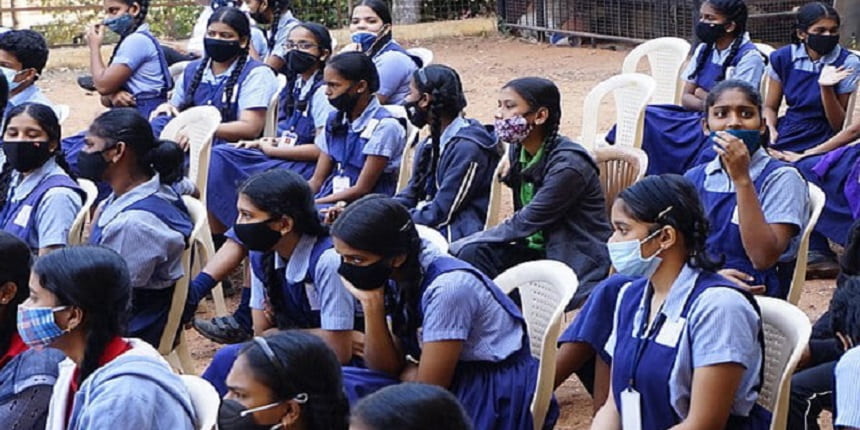CBSE Class 12 physics board exam 2024 today; values of physical constants, weightage
Anu Parthiban | March 4, 2024 | 08:56 AM IST | 2 mins read
CBSE Board Exam 2024: Class 12 physics theory exam will be held for a total of 70 marks. Important formula and chapter-wise weightage.
CBSE 12 Class Free Mock Test
Boost your exam preparation with our CBSE 12 Class Free Mock Test, designed as per the latest exam pattern.
Attempt Now
NEW DELHI: The Central Board of Secondary Education (CBSE) will conduct the Class 12 physics board exam 2024 today from 10.30 am to 1.30 pm. The CBSE Class 12 physics theory paper will carry a total of 70 marks. Students will have to reach the exam hall an hour before the exam commences and should carry the CBSE admit card 2024 mandatorily to the exam hall. CBSE Class 12 Physics Exam 2024 Live
CBSE Class 12th 2026 QP's: Physical Education
CBSE Class 12th 2026: Admit Card | Date Sheet | Exam Calendar
CBSE Class 12: Free Mock Test | Formula Sheet: Maths | Physics | Chemistry
CBSE Class 12 (All Subjects): PYQ's | Question Bank | Practice Questions | Sample Papers
The CBSE 12th physics question paper will have a total of 33 questions and all questions are compulsory. There is no overall choice, however, an internal choice will be provided in one question each in Section B, C and case-based question in Section D and all three questions in Section E.
Students will not be allowed to carry calculators, mobile phones, bluetooth devices or any other electronic devices inside the exam hall. Students may use the following values of physical constants wherever necessary.
c = 3 x 108 m/s
me = 9.1 x10-31 kg
e = 1.6 x 10-19 C
µ0 = 4π x 10-7 Tm?−?
h = 6.63 x10-34 Js
ε0 = 8.854 x10-12 ???−??−?
Avogadro’s number = 6.023 X ???? per gram mole
CBSE 12th physics chapter-wise weightage
Students can take a look at the chapter-wise weightage here to score better in the annual theory exam.
Types of questions | Number of questions, weightage |
Remembering: Facts, terms, basic concepts, and answers. Understanding: Demonstrate understanding of facts and ideas by organizing, comparing, translating, interpreting, giving descriptions, and stating main ideas | 27 (38%) |
Applying: Solve problems to new situations by applying acquired knowledge, facts, techniques and rules in a different way. | 22 (32%) |
Analysing: Examine and break information into parts by identifying motives or causes. Make inferences and find evidence to support generalizations Evaluating: Present and defend opinions by making judgments about information, validity of ideas, or quality of work based on a set of criteria. Creating: Compile information together in a different way by combining elements in a new pattern or proposing alternative solutions. | 21 (30%) |
Total | 100 |
Follow us for the latest education news on colleges and universities, admission, courses, exams, research, education policies, study abroad and more..
To get in touch, write to us at news@careers360.com.